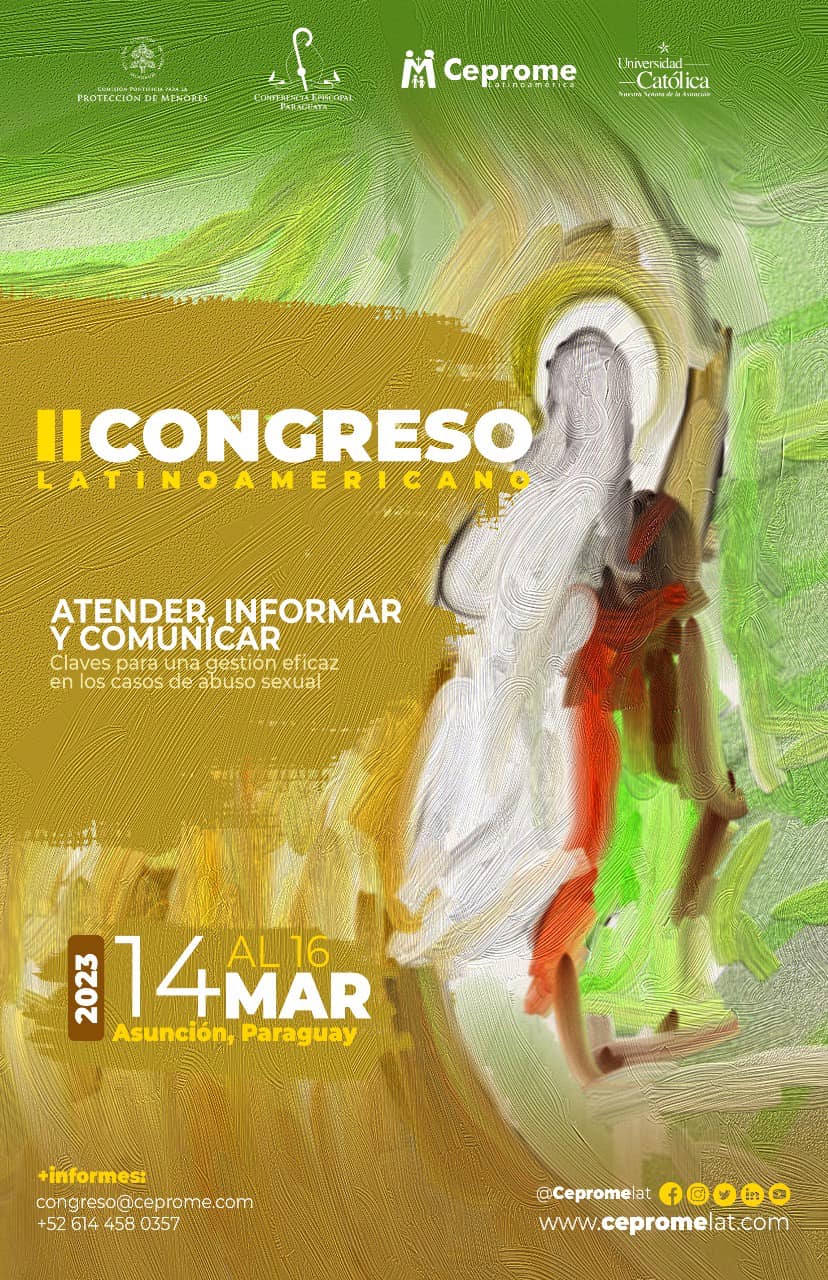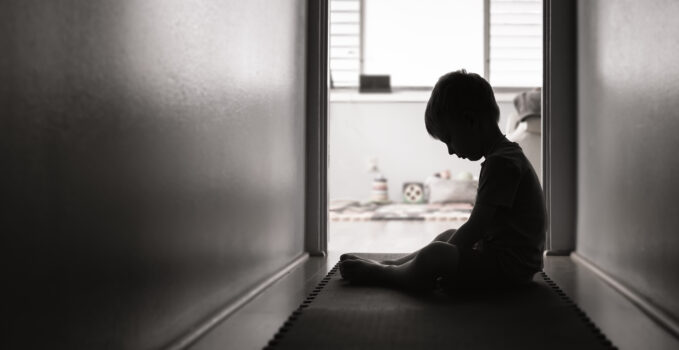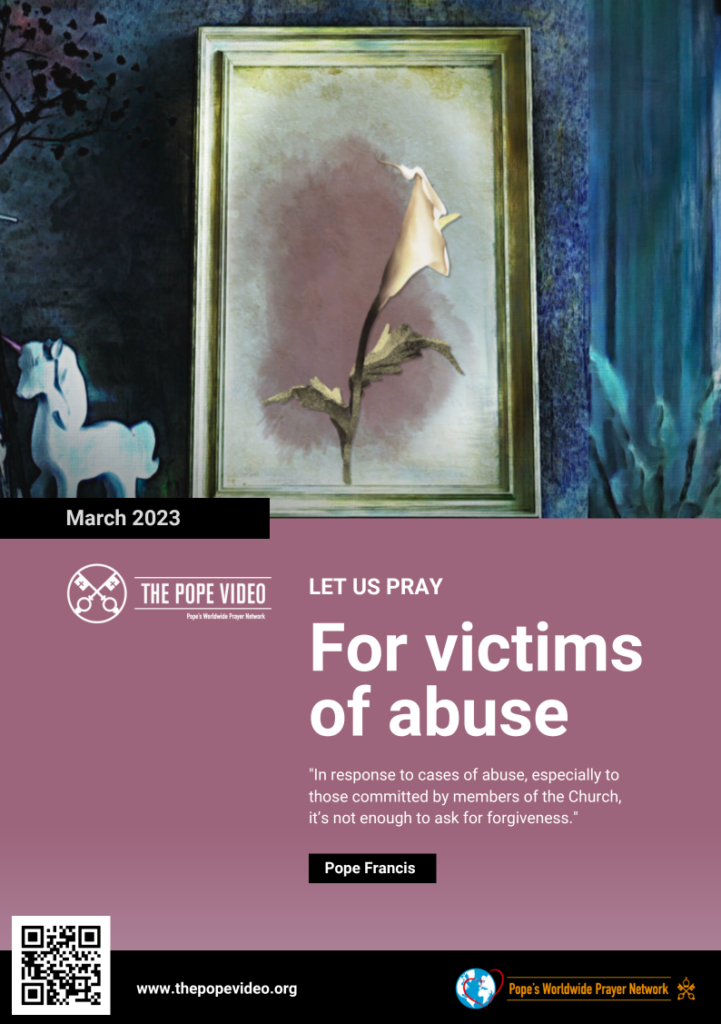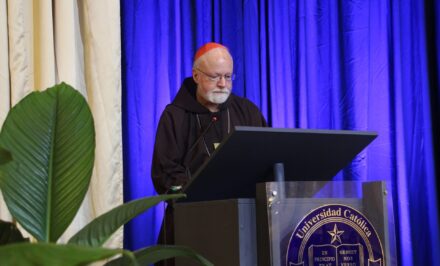ABUSE IN THE CHURCH, Roberto M. González •
At the beginning of March, Pope Francis presents us with a new video with this month’s prayer intention; he calls on the universal Church and each individual Christian to pray for victims of abuse. —
What specifically is the Pope asking of us? He asks us not to be silent when abuse happens, in whatever form. Let us remember that there is not only sexual abuse, but also abuse of conscience, which is the beginning and symptom of other forms of abuse.
He asks us to pray for all these victims, remembering also those who were unable to report or those who did but to whom the Church paid no attention.
Asking for forgiveness is good for the victims, but they are the ones who have to be “at the center” of everything
Here it is not enough to ask for forgiveness. It is not enough and never will be, because the consequences that the victims have to bear are much greater than their own crosses. As Christians, we must accompany them, not just to “undo the damage,” because the process of moving on after abuse can take years and is not just a matter of psychologists, but also of friendships and support networks. You don’t have to know everything an abuse victim has been through to be there to listen and pray.
Prevention is our best tool

2nd Latin American Congress “ATTEND, INFORM, COMMUNICATE: Keys to effective management of sexual abuse cases”
Part of asking for forgiveness is accepting that it happened, accepting it, and committing to do everything we can so that it does not happen again. This is where prevention plays a very important role by establishing protocols and guidelines that are not just on paper, but that every church member should know and know how to act in a situation.
Today we all have the opportunity to access information, different dioceses and organizations such as CEPROME and others support and train everyone interested in creating prevention guidelines. For example, CEPROME’s second Latin American Prevention Congress will be held in Asunción, Paraguay, this March.
Just this week, a report of the Diocese of Mainz, Germany, about the abuse allegations and the clarification processes has been published, covering the period of the last three bishops, the report is more than 1000 pages, I do not want to go into the content, because what is important and noteworthy here is the responsibility to work through the facts, as an incentive for the future to work again on prevention.
Prevention is the best tool we have at our disposal. With a good formation of the whole ecclesial community, from the bishops to the laity, all without distinction of hierarchy, we can create safe spaces inside and outside the Church, everywhere where we make our daily life.
By practicing prevention and keeping our protocols up to date, we can help reduce the stigma, fear and shame of reporting cases of abuse and injustice inside and outside the Church. We can help victims and their families heal their wounds.
Why do we have such a hard time talking about sexual abuse prevention?
It is not an easy or pleasant subject to talk about, but we can no longer hide a reality that has happened and continues to happen in our society, but to create these safe spaces and reduce the risk, it is the only way to talk about it, because if we do not, we indirectly become accomplices to these facts because we have not been trained and because we have not helped others to be trained in prevention, care, information and communication.
All this is nothing new for today’s society. It is no different than compliance, institutional integrity programs, quality management systems (ISO), crime prevention programs, and even law enforcement.
If today we apply and work on these programs to prevent money laundering, drug and arms trafficking, to fight organized crime, to ensure corporate quality and to obtain corporate social responsibility seals, why do we have such a hard time talking about abuse prevention?
Is the business of drugs, weapons and money more important than the business of people? Yes, there are international treaties to prevent human trafficking in all its forms. But it’s still harder to talk about than drugs, weapons and money. Are we doing enough to create societies that are safe for all people? That’s what we need to ask ourselves today.
Asking for forgiveness is necessary, but it is not enough. Asking for forgiveness is good for the victims, but they are the ones who have to be “at the center” of everything.
Their pain and their psychological wounds can begin to heal if they find answers —if there are concrete actions to repair the horrors they have suffered and to prevent them from happening again.
The Church cannot try to hide the tragedy of abuse of any kind. Nor when the abuse takes place in families, in clubs, or in other types of institutions.
The Church must serve as a model to help solve the issue and bring it to light in society and in families.
The Church must offer safe spaces for victims to be heard, supported psychologically, and protected.
Let us pray for those who have suffered because of the wrongs done to them from members of the Church; may they find within the Church herself a concrete response to their pain and suffering.
Roberto M. González
Lawyer at the Catholic University of Nuestra Señora de la Asunción in Paraguay. LL.M. at the Johannes Gutenberg University – Mainz, specializing in juvenile criminal law.
Legal trainer and member of the coordination team of the “Programa Voluntarios Legales Abogacía Pro bono” of the CIDSEP-UC (volunteer legal counsel); member of the prison pastoral team “Visitación de María” of the Centro Educativo Itaugua and volunteer of “Casa Madre de Tuparenda”. Auditor and trainer for the Archdiocese of Asunción in Catholic education and abuse prevention.
Worked in a civil court of the capital, in the Criminal Appeals Chamber, in the Criminal Chamber of the Supreme Court of Paraguay, and finally in the Supreme Supervisory Authority of the Supreme Court of Paraguay. Coordinator of the evening course for admission to higher education at the Catholic University of Asunción and then Academic Vice-Director of the Faculty of Law, Asunción Branch.
He currently works at the Kreuzberg-Bonn, Center for International Education and Cultural Exchange, specialized in teaching German as a foreign language, in Bonn, Germany.
Since 2017, member of the Secular Institute of the Schoenstatt Brothers of Mary.
Original: Spanish. Translation: Maria Fischer @schoenstatt.org















